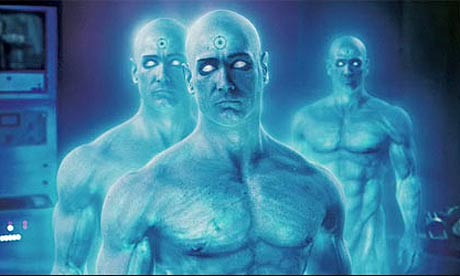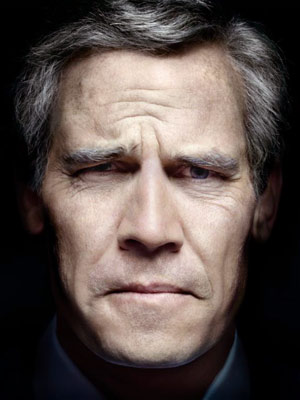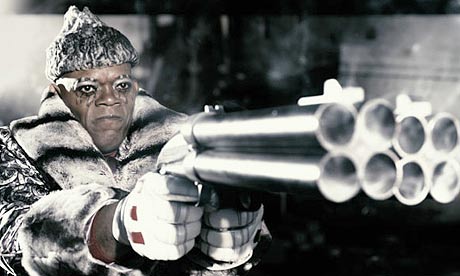
Early on in Watchman's over two and a half-hour running time we see a teenaged Jon Osterman (Billy Crudup) – shown before the particle physics accident that transformed him into disinterested superhuman Dr Manhattan – learning to repair a watch by taking it apart and reconstructing it. The scene foreshadows how he will put himself back together in superhuman form after the accident, it's a metaphor for the complexity of the world, it's the watch that (inadvertently) causes the accident itself – and this is one minor element in a brief flashback involving one of six major characters in the film. The whole film is that dense; there are times where it's almost too much to take. Watchmen is based on the graphic novel by writer Alan Moore (who's fallen out with publisher DC and had his name removed from the film's credits) and artist Dave Gibbons.
Whatever superlative you'd like to use to describe the book, it deserves and then some. It's amazingly dense, extremely complex, emotionally moving, terrifying and uplifting and funny all at once. It's also about superheroes. Watchmen takes place in 1985, on a version of Earth where there was a brief real-life fad for costumed crime-fighters in the 1940s, and Osterman's accident created a superman the US government used to back the Soviet Union into a corner. Crime-fighter turned government assassin The Comedian (Jeffrey Dean Morgan) has just been killed, and with the world teetering on the bring of nuclear war masked vigilante Rorschach (Jackie Earle Haley) believes someone wants the few remaining costumed heroes out of the way. Director Zac Snyder slavishly followed another comic book frame-by-frame to create 300 and he sticks extremely close to the source material again here, making the book's virtues the film's virtues. All the best lines (and some of the clunky ones) are taken verbatim from the book, and scene after scene is a page from the comic brought to life.
But in following the original so closely, the film also highlights a few of the books flaws. As murder mysteries go this one's not hard to solve, and the attempts to streamline the story to fit a reasonable running time cause a few problems of their own, especially in the second half where more and more of the book is lost (until the three and a half-hour DVD verion, no doubt). There are a few scenes where Snyder doesn't seem to trust the book's tone, ramping up emotional moments with cheap shocks or characters shouting "Nooo!", while the jettisoning of the books "street-level" cast of average New Yorkers reduces the impact of the climax (which has been altered from the book) by a sizeable amount. Still, the original is an amazing book; turning it into a merely great film is a win for movie-goers.
Anthony Morris (this review appeared in Forte #448)






